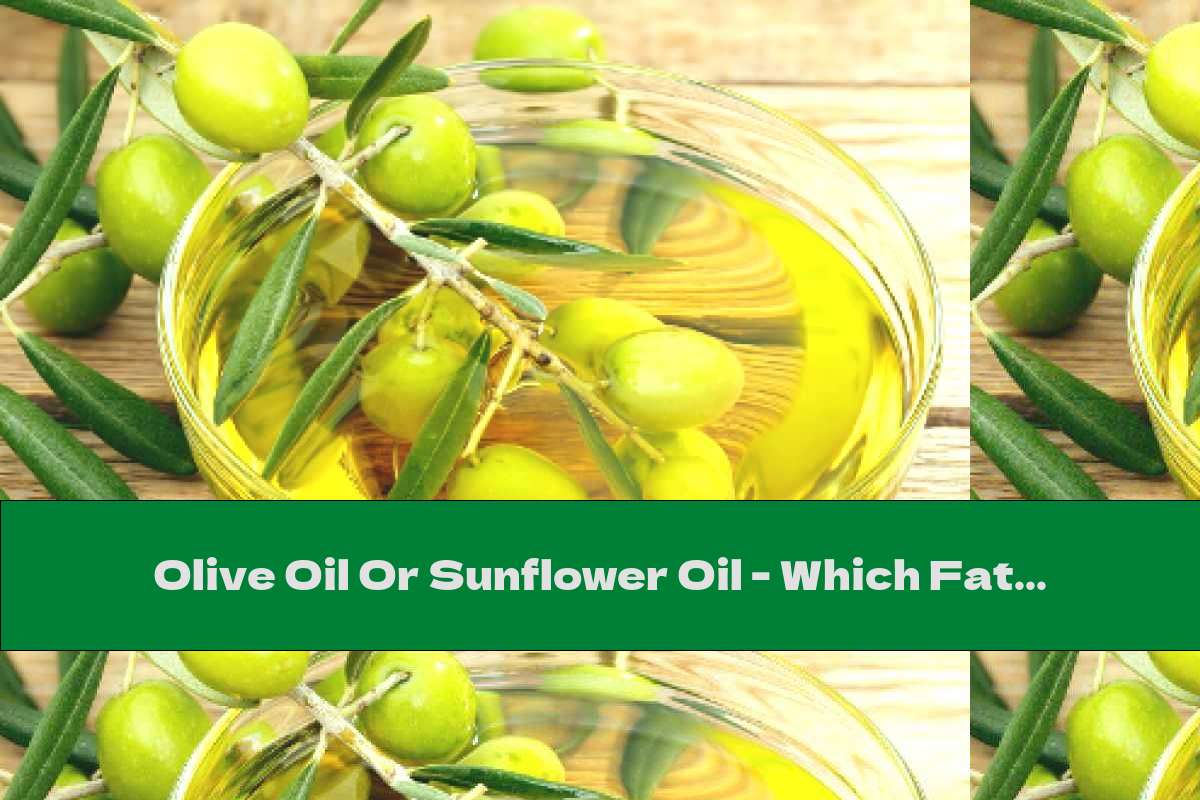Olive Oil Or Sunflower Oil - Which Fat Is More Useful?
 Author: Victoria Aly
Time for reading: ~1
minutes
Last Updated:
August 08, 2022
Author: Victoria Aly
Time for reading: ~1
minutes
Last Updated:
August 08, 2022

Fat in olive oil is not associated with a reduced risk of developing type 2 diabetes.
Despite the benefits of olive oil , it is advisable to use another fat for cooking, such as sunflower or corn. It turns out that people who have high levels of linoleic acid in their blood, which is contained in these oils, have less fat on their body, including around their vital organs.
These factors are associated with longer life and longer activity for longer. People who have higher levels of linoleic acid also have a reduced risk of developing type 2 diabetes and heart disease .
The fats in olives are widely recommended for maintaining cardiovascular health , but compared to oils such as sunflower and corn, they offer fewer benefits.
Linoleic acid is a polyunsaturated omega-6 fatty acid that is found in abundance in many nuts and seeds, including grape, sunflower, poppy, saffron, hemp, corn, sesame, and walnuts.
Oleic acid is a monounsaturated omega-9 fatty acid found in olives, peanut oil, macadamia nuts and sunflower oil. Both types of fat are known as "essential" fatty acids because the body cannot make them. Therefore, they should be taken through the diet.
They are considered healthy fats, compared to the trans fats found in processed vegetable oils, as they increase the levels of "bad" cholesterol in the blood.
When we compare the effects of these two fatty acids, along with another useful type of fat - long - chain omega-3 fatty acids , which are found in oily fish, it is found that they all reduce inflammatory processes in the blood.
The difference is that high levels of oleic acid are not associated with a change in body fat levels. It has also been found not to reduce the risk of type 2 diabetes .
Related Articles
- Nutrition Guide: Fruitskewers in Honey Syrup - Benefits, Recipes, and More
- The Ultimate Guide to Vitamin E in Nutrition: Benefits, Sources, and More
- The Ultimate Guide to Avocado Nutrition: Benefits, Recipes, and More
- The Ultimate Guide to Yogurt: Benefits, Recipes, and More
- Yeast in Nutrition: Benefits, Recipes, and More
Top Nutrition Articles Today
- . The Role of Hydrochloric Acid in Digestion: A Comprehensive...
- . The Latest Food Pyramid: A Guide to Balanced Nutrition
- . The Importance of Nutrition Conferences: Promoting Awareness...
- . The Role of K12 in Nutrition: Benefits, Sources, and Recomme...
- . Understanding Emulsifier 472 (E472a) in Nutrition: Functions...
- . The Role of Hydrochloric Acid in Digestion: Importance, Symp...
- . Chicory: 15 Health Benefits, How To Drink, Contraindications...
- . The Benefits of Myra E: A Powerful Vitamin E Supplement
- . Hydrochloric Acid in Digestion: Importance, Symptoms, and Na...
- . Carbs to Sugar Conversion Chart: Monitoring Carb and Sugar I...